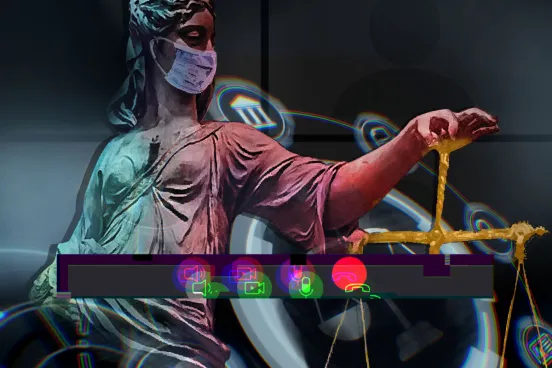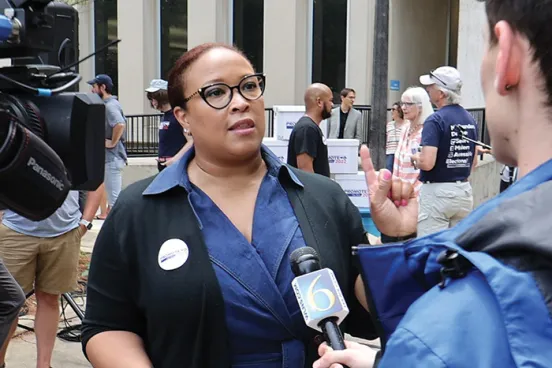When Jonathan Brater, ’11, was appointed Michigan’s director of elections in January 2020, the upcoming election cycle was already set to be groundbreaking. Recent changes to Michigan’s election laws, combined with its stature as a critical swing state in the presidential contest, ensured the state would be under intense scrutiny during an election all but guaranteed to break turnout records. And then, on the night of the presidential primary in March, Governor Gretchen Whitmer announced the state’s first confirmed case of COVID-19.
From 2011 through the end of 2018, Brater specialized in election policy as counsel at the Brennan Center for Justice, and he joined the Michigan Department of State as a legal policy director in January 2019. Brater spent much of that year working with other election officials to implement changes mandated by a 2018 ballot proposal that instituted automatic and same-day voter registration, no-reason absentee voting, and other measures to expand the franchise. In Michigan’s decentralized system, local officials are responsible for administering elections, and the Michigan Bureau of Elections, working under the direction of the Secretary of State, sets policies, procedures, and guidance.
“A lot of the recommendations and lessons learned during conversations in 2019 and from the presidential primary were still applicable during the pandemic, but we made adjustments for our local elections in May and again in August, and then again for the general election in November,” says Brater. “It was really a back and forth with local officials, trying to understand what resources we have at the state and federal level to support them as best we can within the confines of the law.”
One lesson from the presidential primary in March concerned same-day voter registration, which is only available at the clerk’s office as opposed to individual polling places. Clerks in many jurisdictions, particularly college towns, saw extremely long lines as people registered to vote and then immediately applied for an absentee ballot to vote on the spot. It was clear that more staffing resources were needed and that additional offices to encourage voter registration could help manage demand on election day. In Ann Arbor, for example, the City Clerk partnered with the University of Michigan to open a satellite office at the Museum of Art, which provided more access to potential voters and helped spread out registration in the lead up to the election.
In the August primary, more than 60 percent of voters opted to vote by mail, demonstrating how widespread the practice would be in November. (The general election ultimately saw a similar percentage of votes by mail.) The August results led to the purchase of additional voting machines and high-speed letter openers and scanners—an undertaking complicated by pandemic-related supply-chain issues—and a push to get the Michigan legislature to allow clerks to start counting ballots prior to election day. Under pressure to act, the legislature ultimately passed a bill that provided a limited amount of time on the Monday before the general election to open envelopes, but workers remained unable to tabulate votes until election day. As a result, officials were bracing for some jurisdictions to take three or four days to finish counting, but with the lessons from August and by devoting as many resources as possible, Michigan’s election—its largest ever by more than a half million voters—was called about 24 hours after polls closed.
Despite efforts by some partisan actors to falsely paint Michigan’s presidential results as fraudulent in the weeks after the election, it was “the most secure election we’ve ever had,” says Brater. “We have a resilient system, and it relies on people from all different backgrounds and different partisan perspectives doing the work collaboratively and with the good of the country in mind first and foremost. Election officials across the state did a really heroic job in being able to allow our democracy to continue under these extremely difficult circumstances.”








